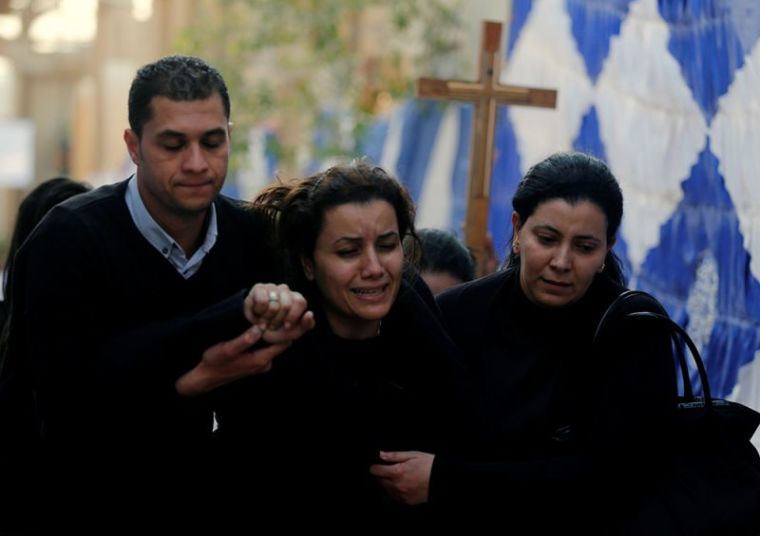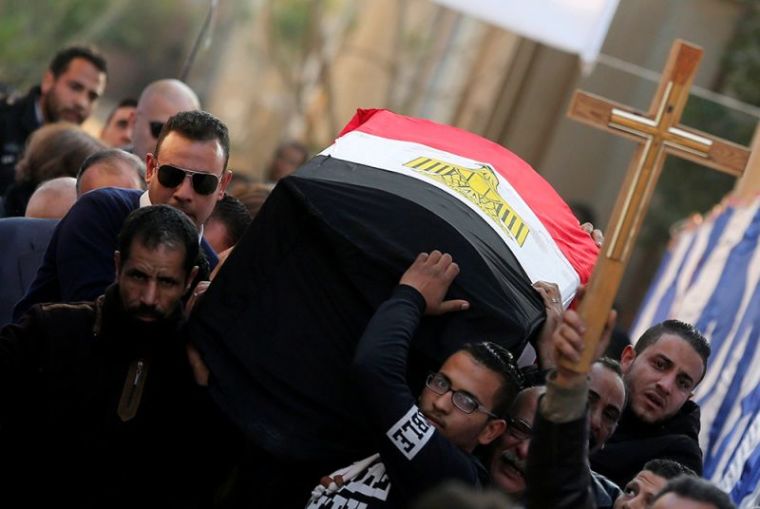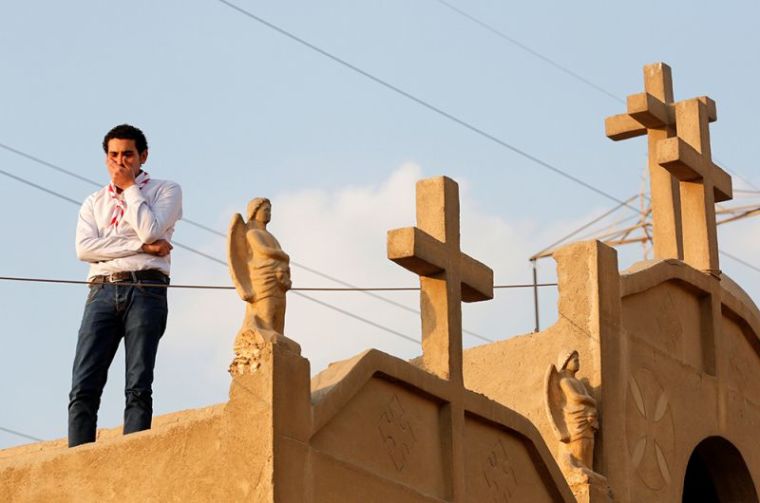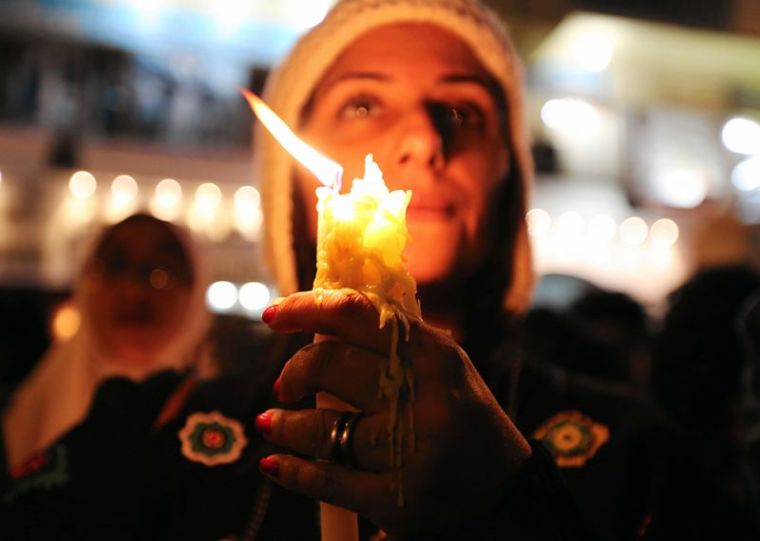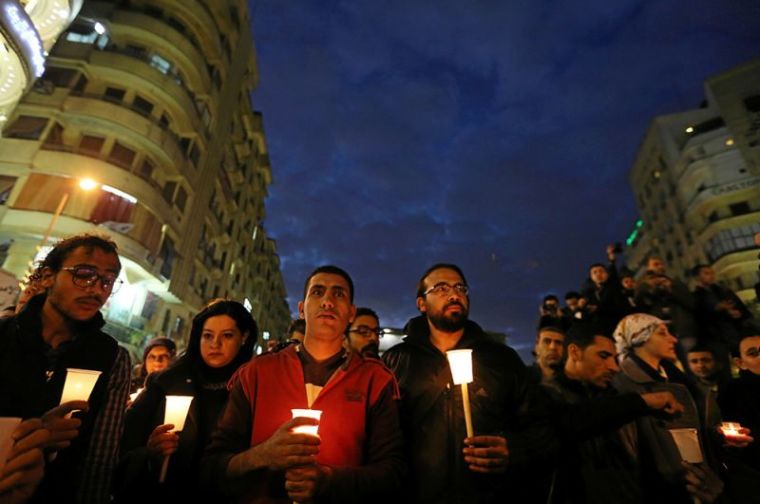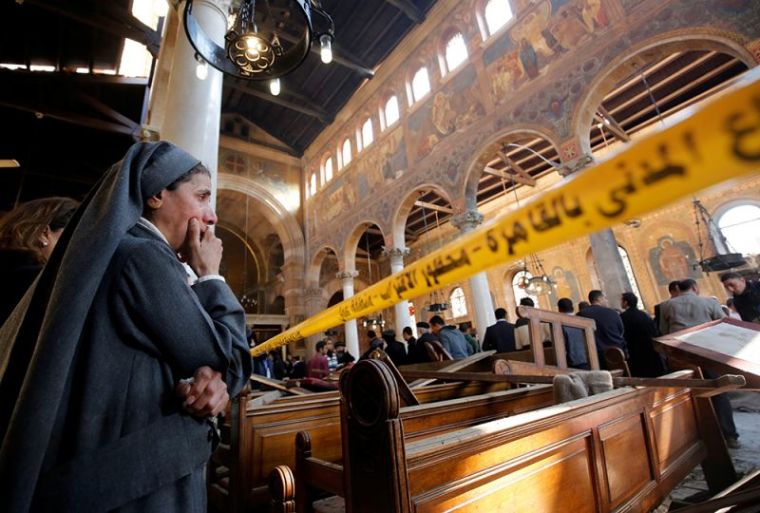Coptic Christians 'Ready to Forgive' After Suicide Bombing Kills 24 in Cairo Church
Christians in Egypt have forgiven those responsible for the deadly suicide bombing at St. Peter and St. Paul's Church in Cairo, which left 24 Christians dead and 49 others injured, Coptic Bishop Anba Angaelos told The Christian Post on Wednesday.
Egypt President Abdel Fattah el-Sisi announced on Monday that it was 22-year-old Mahmoud Shafiq Mohammed Mustafa who entered the church attached to the St. Mark's Coptic Orthodox Cathedral on Sunday morning and detonated a 12-kilogram explosive that killed mostly Christian women and children.
Additionally, four others — three men and one woman — have been arrested on suspicion that they aided the suicide bomber in the terror plot.
Although the Egyptian government initially believed that the Muslim Brotherhood was responsible for the attack, the Islamic State has claimed responsibility for the attack and issued a statement that identified the suicide bomber by the nom-de-guerre Abu Abdallah al-Masri.
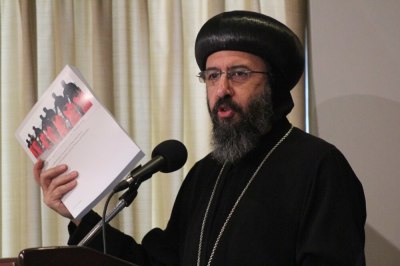
But regardless of who is responsible for the attack, Angaelos, the general bishop of the Coptic Orthodox Church in the United Kingdom, told CP in a phone interview that the persecuted Coptic Christian community will not respond to the attack with vengeance.
"Historically in Egypt, after everyone of these attacks or similar attacks, of course there has been anger and public outcry, but there hasn't been retaliation or revenge," Angaelos explained. "That is one thing that we are very thankful for."
"As a church, we really haven't blamed anybody. We are waiting for a formal investigation," Angaelos continued. "If IS has claimed responsibility it doesn't make it any more or less painful. Our pain is in the loss of people. Our pain is in a mindset and a conscience that can actually carry out this kind of act, whoever it is."
As private funeral services for the victims were held on Monday, community members organized a public candlelight vigil Wednesday evening in downtown Cairo that was attended by dozens of mourners. Additionally, another vigil and prayer service was held at Westminster Abbey in London, which was led by Angaelos and attended by the Archbishop of Canterbury Justin Welby, and Egypt's Ambassador to the U.K., Nasser Kamel, among other leaders from across the religious spectrum.
"We are praying that there is healing in the community. We are ready to and we already have forgiven people for doing this because at the end of the day, a lack of forgiveness harms us more than anyone else," Angaelos told CP. "I think that is something that we need to be mindful of as Christians, and I am very proud to say that this is something we have seen Copts doing very naturally and organically for decades."
The attack at St. Peter and St. Paul's marks the deadliest attack on an Egyptian church in recent years. Additionally, it is the first attack against the Christian community in a major Egyptian city since 2011, when a suicide bomber killed nearly two dozen people and wounded 97 in front of a Coptic Orthodox church in Alexandria.
Angaelos told CP that the majority of extremist attacks in Egypt tend to happen in upper and rural Egypt.
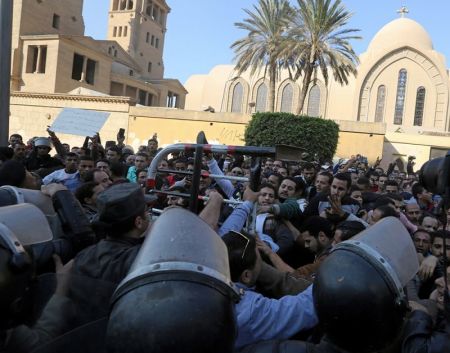
"Egyptian churches are always a soft target," he warned. "People that are attacking Christians aren't just hunting Christians. They want a very narrow society that is only open to people who are exact in mindset and attitude, and they continue to target even the majority of Muslims. This attack should be taken seriously, not just for Christians but the community as a whole."
While some have criticized the Egyptian government for not doing enough to protect religious minority communities, Angaelos understands the challenges that the government faces when trying to prevent terror attacks against soft targets.
"Trying to preempt what is going to happen is possibly a bottomless pit. What we need to do is to try to heal a community in which this is capable of happening," Angaelos said. "I don't think it is extremist groups that are the issue. I think the issue is the fertile grounds into which they can plant their seeds, where people can take their ideas and run with them. I think it should be about healing communities, to help people say that they can't kill a fellow Egyptian, fellow Brit or fellow American because that person is a fellow human being and I can't treat a fellow human being this way."
Angaelos also criticized some Egyptian websites that have accused the Coptic Christian community of being complicit in Sunday's attack.
"We have seen accusations on various websites in Egypt that have said that the Christians are complicit in the bombings because they are trying to get public sympathy," he explained. "Of course, it's ludicrous and it's insulting. It's insulting to accuse a community when it's grieving over 24 departed who are mainly women and children. I just think if that is a response to such a tragedy, I am just wondering where the conscience is behind that."









